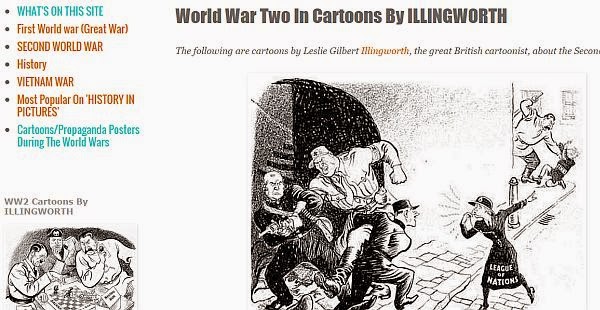German soldiers hiding behind the pillars of the Grand Opera in Warsaw as they crush the uprising.
The Polish are a very fiercely proud people. So when the Treaty of Versailles gave birth to an independent Poland in 1919, it delighted the Polish heart. But not for long. In 1939 Germany and Soviet Russia swallowed it up after partitioning it.
1944. The Germans are being beaten thoroughly by the advancing Red Army. The Polish Home Army (Armia Krajowa, the non-communists) thought the time was ripe to throw the Germans out themselves so that they could claim the right to rule Poland in a post-German era.
The Home Army thought that the Red Army on the other side of the Vistula would lent a helping hand. But the Russians just watched as the Uprising was brutally crushed by the Germans.
Many say Stalin did not help the uprising because he wanted a pro-Soviet communist government in Poland. This is partly the truth. The Red Army had been on the heels of the retreating Germans for months after Operation Bagration. The supply lines were stretched. The Russians soldiers were tired.
But one must admire the bravery of the Polish who took on the Germans themselves in 1944. What happened is a heart-wrenching story of how the Germans squashed the Warsaw Uprising and eliminated the brave men of Armia Krajowa.
Warsaw insurgents put up a barricade on a Warsaw street. September 1944.
A SS non-commissioned officer inspects the bodies of two of the Warsaw insurgents killed in the Old Town. November 1944.
A group of German prisoners captured by Warsaw insurgents near the building of the Polish telephone company. August 1944. Don't be confused by the guards wearing German Stahlhelm helmets. The Polish fighters used them too.
Moments of despair. Polish Home Army fighters with a 7.92 machine gun (A Polish version of the American Browning gun) in October 1944 sometime before surrender to the Germans in the center of a devastated Warsaw.
September 7, 1944. Representatives of the Polish Red Cross arrive blindfolded to meet German military policemen to negotiate safe passage of civilians.
Moments of despair. Polish Home Army fighters with a 7.92 machine gun (A Polish version of the American Browning gun) in October 1944 sometime before surrender to the Germans in the center of a devastated Warsaw.
September 7, 1944. Representatives of the Polish Red Cross arrive blindfolded to meet German military policemen to negotiate safe passage of civilians.
Armia Krajowa fighters ride a captured German armored carrier on the streets of Warsaw. August 1944.
The uprising was brutally broken by the SS, Police, penal battalions and Russian collaborators. Men from the Russian People's Liberation Army are seen here with SS men.
German collaborators included the Russian Cossacks. Seen here are Cossacks (the one with a helmet on is an officer) watching the suppression of the uprising.
August 1944. German prisoners led by a Home Army soldier.
A Polish civilian woman killed during a German air raid at 10 Moniuszko Street, Warsaw. September 1944.
German prisoners marked with swastika line up by the insurgents against the wall of the ghetto on Bonifraterska Street. Were they shot later?
The Germans used massive 600 mm guns to flatten insurgent positions. Here the Prudential building is hit. It collapsed in seconds.
Germans use the Wurfrahmen 40 multiple rocket launchers against the Home Army positions. September 1944.
Warsaw burns during the Uprising
Polish general Komorowski rides to surrender to the Germans. October 4, 1944.
Komorowski after surrender with Obergruppenfuhrer Erich von dem Bach-Zelewski
Bach Zelewski welcomes back captured Germans.
Home Army fighters surrender.
Germans pull out a Armia Krajowa man from a man hole
The Polish insurgents hand over their arms.
Armia Krajowa fighters march into captivity. Very few were left alive by the Germans.
German collaborators included the Russian Cossacks. Seen here are Cossacks (the one with a helmet on is an officer) watching the suppression of the uprising.
August 1944. German prisoners led by a Home Army soldier.
A Polish civilian woman killed during a German air raid at 10 Moniuszko Street, Warsaw. September 1944.
German prisoners marked with swastika line up by the insurgents against the wall of the ghetto on Bonifraterska Street. Were they shot later?
The Germans used massive 600 mm guns to flatten insurgent positions. Here the Prudential building is hit. It collapsed in seconds.
Germans use the Wurfrahmen 40 multiple rocket launchers against the Home Army positions. September 1944.
Warsaw burns during the Uprising
Polish general Komorowski rides to surrender to the Germans. October 4, 1944.
Komorowski after surrender with Obergruppenfuhrer Erich von dem Bach-Zelewski
Bach Zelewski welcomes back captured Germans.
Home Army fighters surrender.
Germans pull out a Armia Krajowa man from a man hole
The Polish insurgents hand over their arms.
Armia Krajowa fighters march into captivity. Very few were left alive by the Germans.





































































